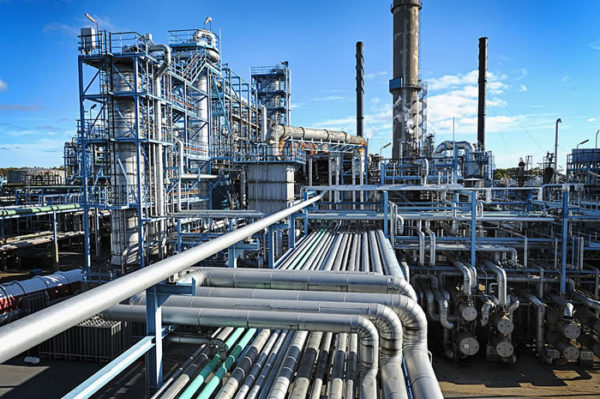
Futures were little changed in New York. The two African producers, exempt from the OPEC-led cuts because of internal strife, have been invited to a July 24 meeting in Russia to discuss whether their production has stabilized, Kuwait’s Oil Minister Issam Almarzooq said in Istanbul. Libya and Nigeria together added 440,000 barrels a day of production in May and June as fields restarted, according to data compiled by Bloomberg.
Oil in New York and London remains in a bear market amid concerns elevated global oil inventories and rising supply will offset curbs by the Organization of Petroleum Exporting Countries and its partners including Russia. It’s premature to talk about deepening output cuts, OPEC Secretary-General Mohammad Barkindo said in Istanbul.
“Sentiment in the oil market is still negative,” Giovanni Staunovo, an analyst at UBS Group AG said. “In order to change that, a series of large inventory drawdowns in the U.S. is probably needed.”
West Texas Intermediate for August delivery was little changed at $44.19 a barrel as of 9:25 a.m. London time, erasing a gain of as much as 1.1 percent earlier. Total volume traded was about 14 percent above the 100-day average. Prices fell $1.29, or 2.8 percent, to $44.23 on Friday.
See also: Good News Can’t Stop Oil Market’s Bad Mood as Short-Sellers Rule
Brent for September settlement fell 6 cents to $46.67 a barrel on the London-based ICE Futures Europe exchange. Prices slid 2.5 percent last week. The global benchmark crude traded at a premium of $2.30 to September WTI.
Deepening production cuts is not on the agenda for the July 24 meeting in St. Petersburg, said Kuwait’s Almarzooq, who is chairman of the committee monitoring compliance with the curbs. If Libya and Nigeria are able to stabilize their output at current levels, they will be asked to cap supply as soon as possible, he said.
This idea of setting a ceiling for Libya and Nigeria “would give the market some clarity where the cap for the overall OPEC production lies,” Staunovo said.
Oil-market news:
- U.S. crude drillers increased the rig count by 7 to 763, Baker Hughes Inc. said Friday.
- Saudi Aramco will invest $300 billion in oil production over the next decade.
- Energy demand will keep growing over the next 20 years, said Russian Energy Minister Alexander Novak.
- The tussle for supremacy between OPEC and U.S. shale drillers is killing off older oil fields at the fastest pace in almost a quarter century, according to consultant Rystad Energy AS.